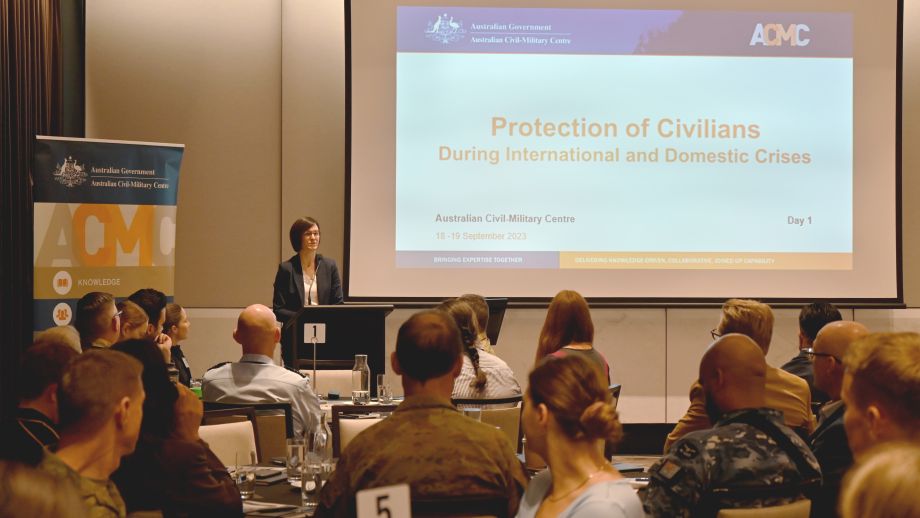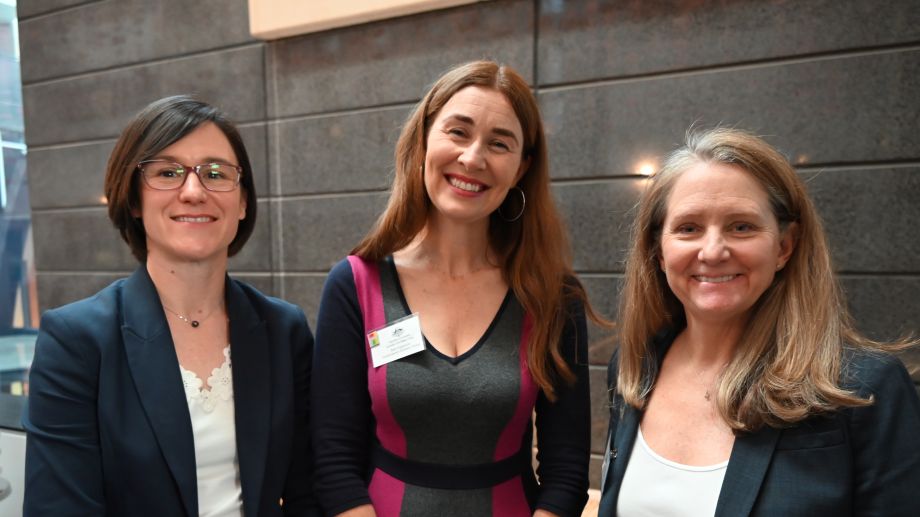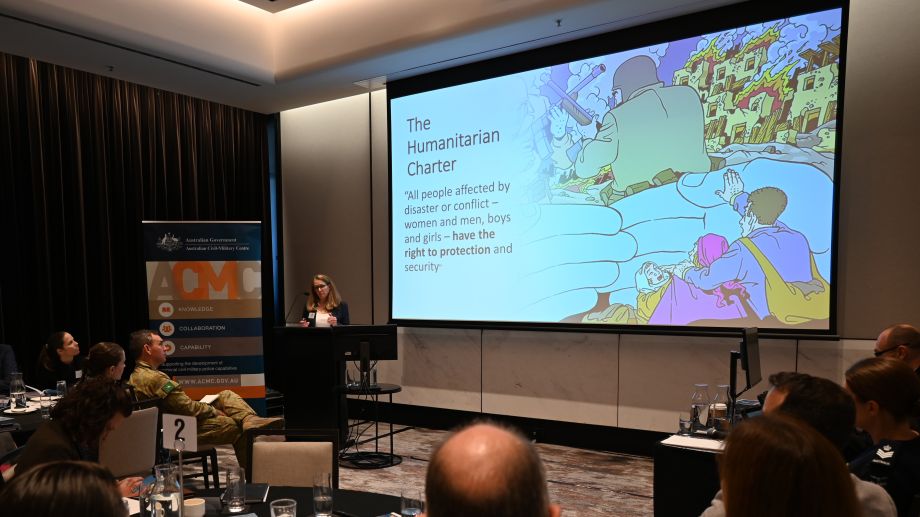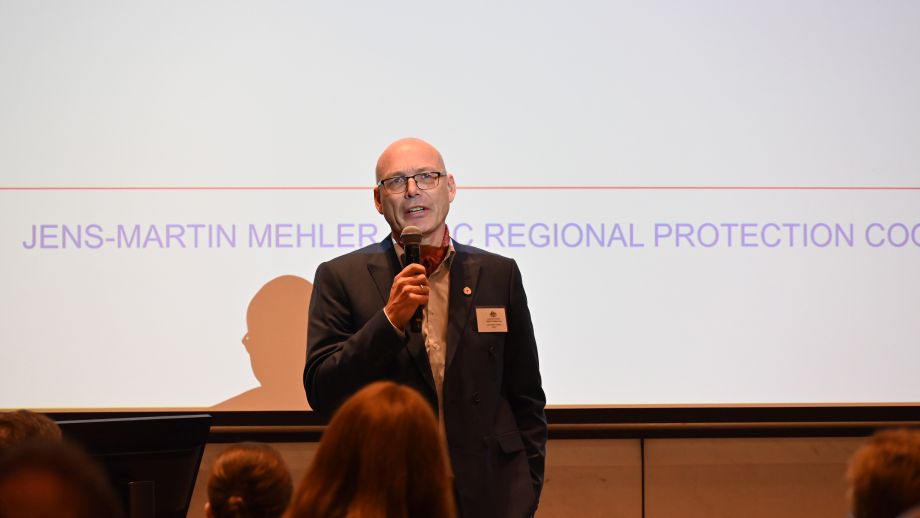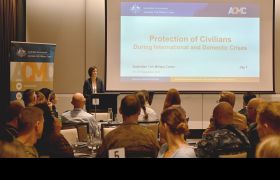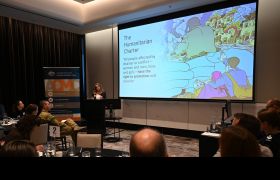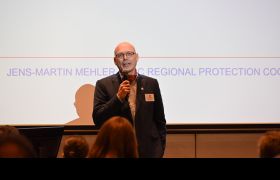ACMC convened a workshop to consider the changing context of Protection of Civilians (POC) and identify emerging challenges and avenues to minimise the risk to civilians in crisis.
“Protection of Civilians policy is often confined to military armed conflict and other situations of violence. We need to broaden our thinking to new global challenges such as emerging technologies. Also, with the increased frequency and severity of natural disasters across the world we are seeing complex, multinational responses involving many different players where protection of civilians should be considered,” ACMC Executive Director, Nicola Rosenblum said.
The two-day workshop in Canberra built participants’ awareness of contemporary and emerging issues in POC.
ACMC Executive Director, Nicola Rosenblum, opened the workshop, which featured a range of presentations, including Beth Eggleston (Humanitarian Advisory Group), Jens-Martin Mehler (International Committee of the Red Cross) and Professor David Letts (Australian National University). Case studies centred on the risks of unexploded ordnance to civilian populations, protection of civilians in the maritime environment, climate impacts on civilian populations and the challenges of state and non-state actors conducting disinformation campaigns against civilians during a crisis.
More than 60 representatives attended from Defence, DFAT, NEMA, AFP, the New Zealand Government, ICRC and civil society


